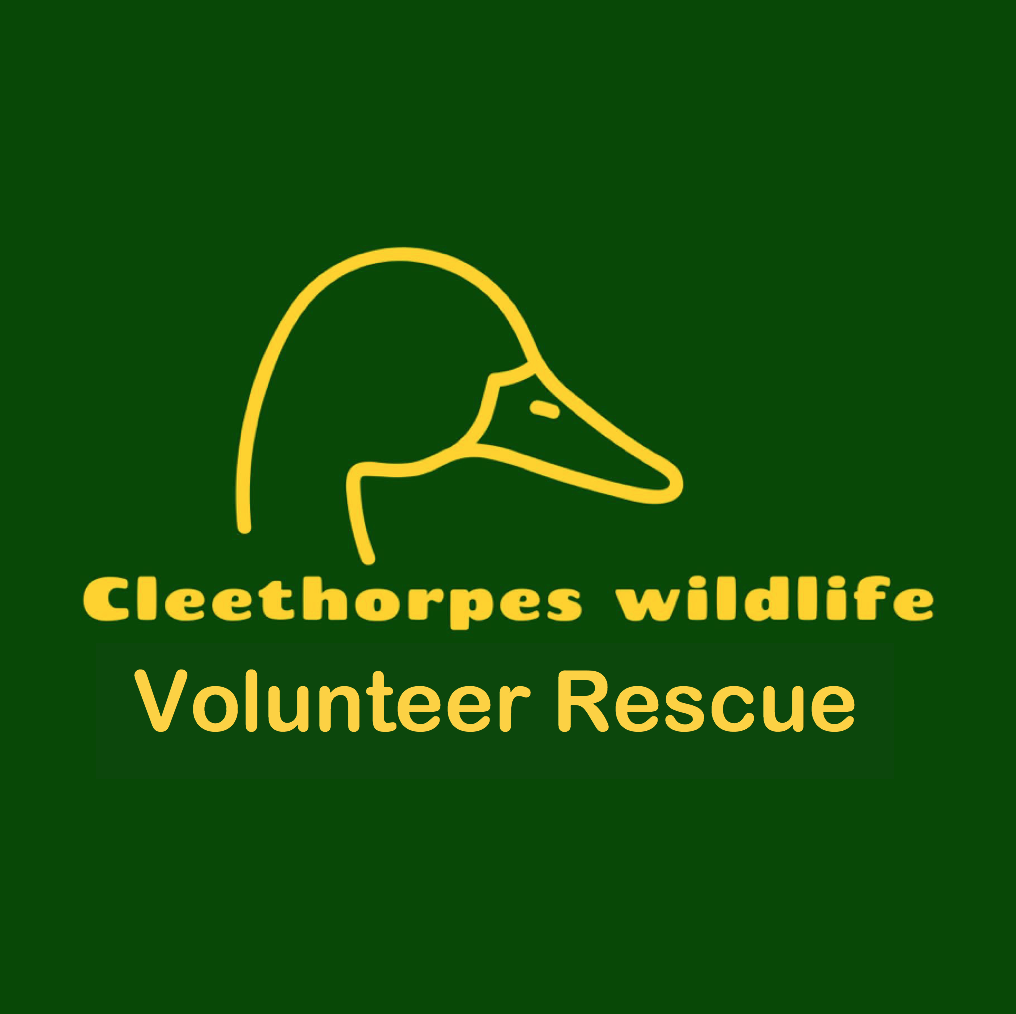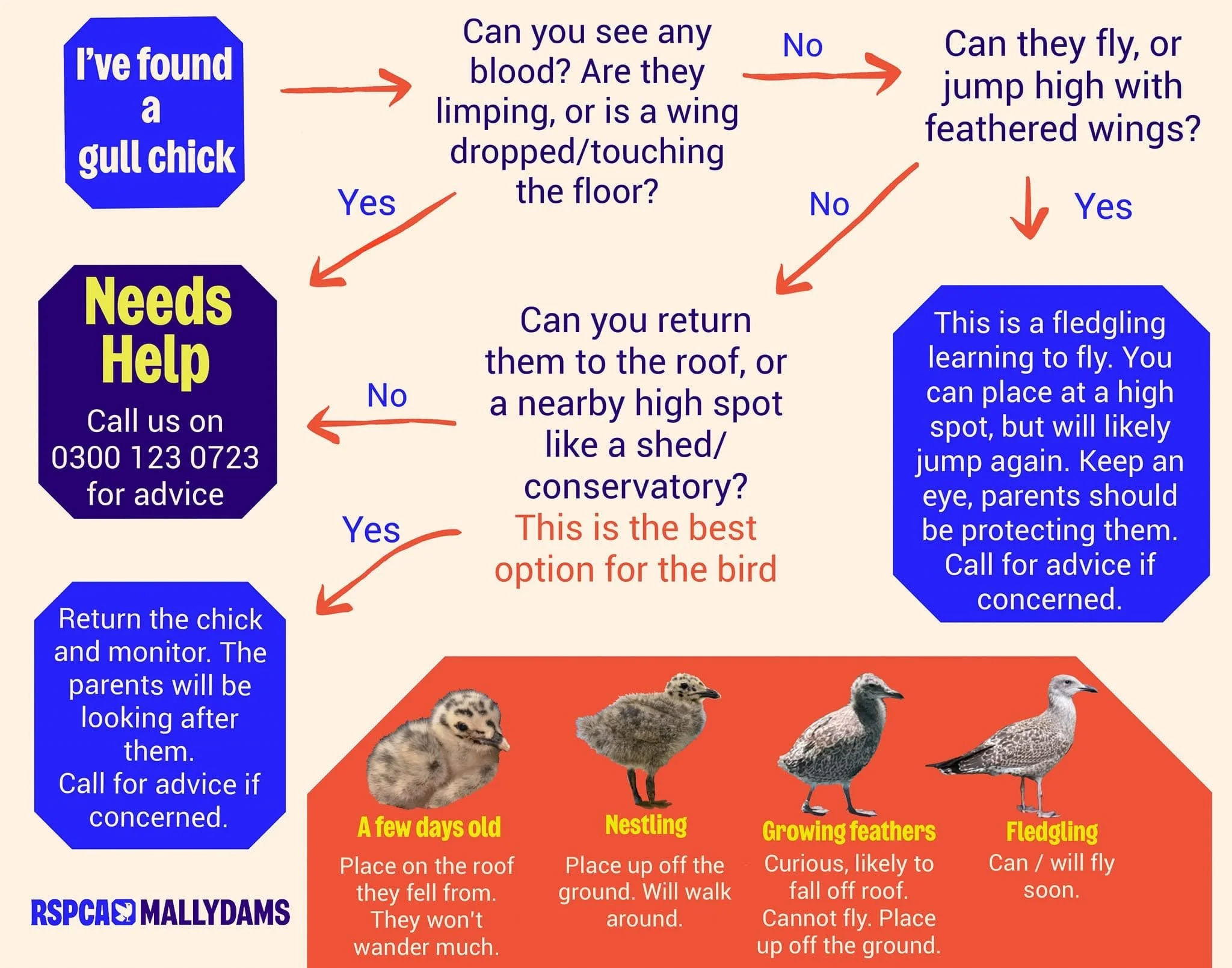
Gull Chicks
Gull chicks are resilient birds with highly protective parents. If found prior to the fledgling stage, they can often be successfully reunited with their parents or relocated to a safer spot, allowing the parents to continue caring for them.
Refer to the RSPCA flow chart to determine whether the gull chick you are observing requires assistance.
In certain situations, rescue teams may be able to facilitate a reunion if you are unable to place the chick on a higher roof.
Gull chicks that have entered the fledgling stage should be left undisturbed unless they are sick or injured.
Fledgling Gull Chicks
Every year, we receive numerous calls regarding fledgling gulls found in residential gardens. During this time, parent gulls become particularly defensive of their young, often swooping toward perceived threats while engaging in aggressive behaviours, such as defecating, to deter them. While we recognise that this behaviour can be quite inconvenient, it is crucial to understand that fledgling gulls do not require rescue in these situations. Removing them from their environment diverts resources from gulls that are in genuine need of care and is contrary to the Wildlife and Countryside Act 1981.
If you find a fledgling gull in your garden, you may consider placing it on a higher surface, such as a flat roof. However, be mindful that fledglings may return to the ground, and you may encounter highly protective parent birds during this process. It is important to note that relocating or removing a wild bird due to nuisance complaints is not advisable.
CATS AND DOGS:
If you have dogs that need to go out to the toilet, please consider placing them on a lead, or taking them on a walk where they can go to the toilet as needed.
We cannot legally remove any wild birds from the area due to the presence of cats. Gulls have tremendously strong beaks, and cats will rarely wish to take on a fight against a fledgling or the adults above. If you have cats that need to go outside, please monitor them for the safety of the bird and your cat.
I have gulls nesting on my roof, and they’re being a nuisance. Can you remove them?
No, all birds, their nests, and eggs are protected under the Wildlife and Countryside Act 1981. This legislation makes it illegal to interfere with, damage, or disturb any wild bird nests, including those of gulls. There are rare circumstances where a licence from DEFRA may be granted to address a public health risk; however, this can only be undertaken by a licensed controller. Cleethorpes Wildlife Rescue is not licensed to carry out these tasks, and it is important to note that such actions are not free of charge. If you are aware of any individuals engaging in these activities without the appropriate licence, please report them to the police.
When will a rescue assist?
Rescues can offer help with gulls in situations where the bird is sick, injured, or orphaned.
Typically, rescues will request images of the bird to evaluate any injuries or signs of deterioration. If the finder reports that the bird has been orphaned, the rescue may conduct a period of observation to confirm this before taking the bird into care.
Cleethorpes Wildlife Rescue is a small rescue with limited facilities for gull chicks, which can lead to capacity limitations. For assistance, please call us at 01472 472217, or seek help from our partner rescues or the RSPCA at 0300 1234 999.




